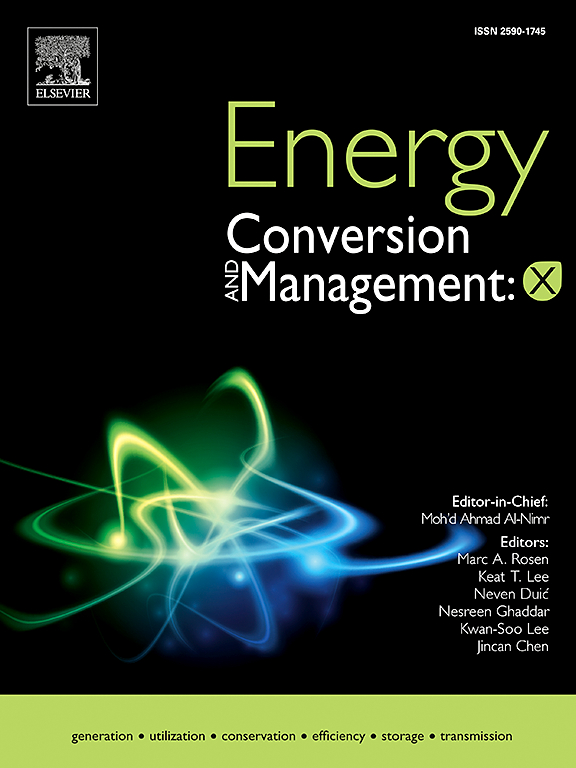Scenario-Based analysis of energy transition for an outermost EU Territory: The case of Tenerife island
IF 7.1
Q1 ENERGY & FUELS
引用次数: 0
Abstract
The Canary Islands are targeting full decarbonization by 2040, a decade ahead of Spain and the European Union. However, the region relies heavily on aging fossil-fuel plants and energy imports, with only 20% of its electricity derived from renewable sources. This study evaluates official regional decarbonization plans’ feasibility and economic efficiency and proposes an alternative energy transition pathway tailored to Tenerife’s unique geographical and technical challenges. Using EnergyPLAN simulation software, three scenarios are modeled: the current trajectory, the implementation of regional decarbonization plans, and a novel pathway to achieve net-zero emissions by 2040. The proposed scenario achieves 86% renewable electricity generation and reduces electricity costs by 48%, from 0.56 to 0.29 €/kWh, outperforming official plans. Key strategies include introducing natural gas as a transitional fuel, deploying battery storage to support renewable energy expansion, and integrating offshore wind and green hydrogen technologies. This study advances energy transition research for isolated territories by offering practical, cost-effective solutions that balance feasibility and ambition with broader applicability to other land-constrained systems and outermost regions in Europe.

求助全文
约1分钟内获得全文
求助全文
来源期刊

Energy Conversion and Management-X
Multiple-
CiteScore
8.80
自引率
3.20%
发文量
180
审稿时长
58 days
期刊介绍:
Energy Conversion and Management: X is the open access extension of the reputable journal Energy Conversion and Management, serving as a platform for interdisciplinary research on a wide array of critical energy subjects. The journal is dedicated to publishing original contributions and in-depth technical review articles that present groundbreaking research on topics spanning energy generation, utilization, conversion, storage, transmission, conservation, management, and sustainability.
The scope of Energy Conversion and Management: X encompasses various forms of energy, including mechanical, thermal, nuclear, chemical, electromagnetic, magnetic, and electric energy. It addresses all known energy resources, highlighting both conventional sources like fossil fuels and nuclear power, as well as renewable resources such as solar, biomass, hydro, wind, geothermal, and ocean energy.
 求助内容:
求助内容: 应助结果提醒方式:
应助结果提醒方式:


